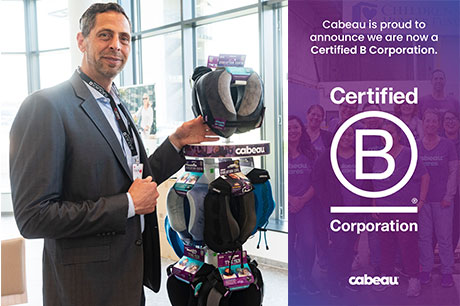Covid-19 ‘pain point’ for South Korea DF&TR in Q1
By Luke Barras-hill |

South Korea has been praised for its handling of Covid-19, with the total death toll standing at less than 300 people.
Research from South Korea’s Center 4 Duty Free (C4D) illustrates the sizeable impact of the coronavirus (Covid-19) on the country’s travel retail and duty free sector in the first quarter of 2020.
According to C4D, duty free sales grew by 18.3% in January year-on-year to KRW2.02 trillion/US$1.73 billion, but declined by 11.38% compared to the KRW2.28tn/US$1.95bn sales recorded in December 2019.
C4D indicates that a decline in January revenue is routine taking into account seasonal factors and fewer Chinese tourists, although Korean DF&TR sales traditionally increase sharply before the Chinese New Year (25 January) holiday period. Notwithstanding this, it is difficult to apportion the revenue dip solely to Covid-19.
After the end of the Chinese New Year holiday, Korean duty free shops rushed to install thermal imaging systems to monitor body temperature levels.
FEBRUARY: THE ‘GREAT TURMOIL’ BEGINS
But it wasn’t until China extended its Chinese New Year holiday (26 January-10 February) and regional travel blockades took effect that the beginning of what C4D refers to as the ‘great turmoil’ in Chinese customers began in earnest. This resulted in a ‘direct impact’ on Korean duty free around this period.
In early February, Covid-19 began to spread but only a few downtown shops, including those operated by the likes of Lotte Duty Free and The Shilla Duty Free, closed temporarily for disinfection before re-opening.
C4D pinpoints the direct impact on Korean duty free sales occurring around this time; China’s ban on group tours prompted a 23.4% fall in Korean duty free sales in the fourth week of January and a 42% decline in the first week of February.
“This trend continued throughout February, decreasing by 38.4% in the second week of February and 40.4% in the third week of February,” said C4D.
The World Health Organization (WHO) declared Covid-19 a global pandemic on 11 March.
According to C4D, Incheon International Airport reported at a meeting on 16 March with related organisation under the Ministry of Land, Infrastructure and Transport that pax demand had plunged by 91.5% to 14,000 pax daily – down from a daily average of 170,000 pax in 2019.
TBusiness was already aware of Incheon Airport’s international passenger volumes nosediving by approximately 91.7% in the second week of March year-on-year.
“During SARS and MERS, Korea’s duty-free sales and marketing activities were comparably smaller and simpler than those in 2020,” continued C4D. “At that time, the Japanese and the Korean customers were the main target market.
“Since 2014, the core customer segment has turned into Chinese. While mainland China is locked down, it is difficult for Korea duty free to overcome the current crisis, even though various methods are being adopted by the government and the private sector in order to survive.”
Of course, there have been promising signs of late indicating a travel revival in the domestic Chinese market, although it is unlikely that a spark in the international travel segment will materialise anytime soon.
South Korea has been praised for its handling of Covid-19, with the total death toll correct at the time of writing standing at less than 300 people.
In April, the country reported no confirmed cases for the first time since earlier in the year, although smaller clusters of the virus have emerged this month.
According to the government, there were a total of 16 new cases in the country as of 25 May. The total number of cases stood at 11,206 (including 1,215 imported cases), of which 10,226 people have been discharged from isolation.
SEOUL TAKES 85% SHARE OF DOWNTOWN SALES
In an extended analysis of South Korea’s duty free market performance in 2019, C4D reports that sales rose by 31% year-on-year to reach KRW24.8 trillion/$21.3 billion.
Approximately 70% of this revenue was attributed to daigou traders due to the sluggish recovery in Chinese group tours.
C4D says the country’s duty free sector grew at a CAGR of +27.3% from 2016 to 2019 and netted more than $10bn in 2016.
In the 10 years to 2019, the Korean duty free sector has grown more than five fold.

Click to enlarge.
The driving force has been Chinese travellers, which rose by 24.8% in 2019 year-on-year to around six million, although it is worth pointing out that the overall number of annual Chinese tourists to South Korea decreased to 4.1 million following the THAAD retaliation from the Chinese government in 2017, having hit a high of 8.1 million the year prior.
A highly competitive downtown duty free segment witnessed a 37% growth in sales last year to KRW21tn/$18bn and accounted for 84.6% of total Korean duty free sales.
At around $15.4bn, sales from Seoul’s downtown duty free shops accounted for a 85.5% share of total downtown duty free sales.
Unsurprisingly, large corporations such as The Shilla Duty Free, Lotte Duty Free and Shinsegae Duty Free took a 83.7% share of Seoul’s total downtown duty free sales.
Lotte Duty Free Myeongdong, The Shilla Duty Free Seoul and Shinsegae Duty Free Myeongdong stores made up around 71% of downtown duty free shop sales in Seoul and 59.5% of total Korean downtown duty free shop sales.
While the large conglomerates dominate downtown and at airports, SMEs such as City Plus, Entas, SM Duty Free and Grand Duty Free have worked hard to make airports a bigger slice of their respective businesses as competition downtown intensifies.
This is putting greater pressure on SMEs and as TRBusiness wrote last week, the industry mood is that consolidation is on the cards.

Incheon Airport international passenger volumes nosedived by approximately 91.7% in the second week of March year-on-year.
Meanwhile, online duty free continues to display robust growth. C4D claims sales have surged by 956.5% between 2014 to 2019, when sales hit KRW7.6tn.
“Online duty free shops can be regarded as a key driver of the increase in Korean duty-free sales,” said C4D. “Among them, online sales of the big three companies reached KRW6,684.4 billion [in 2019], which accounts for 88% of the total online sales of KRW7,598.1 billion. Practically online duty free can be said to be owned by those big three players.”
“Lotte Myeongdong, Shilla Seoul, and Shinsegae Myeongdong have the highest online sales contributing to the overall sales growth of Korean duty free.”
Center 4 Duty Free conducts research on South Korea’s duty free market and claims to be the duty free industry’s only monthly report with an authorised database and in-depth information obtained directly from the government and operators.
For more insight, read the May issue of TRBusiness. Click here to subscribe.
Alcohol insights: Conversion up, spend down in Q4
Conversion of visitors in the alcohol category in duty free has risen to 54% in Q4 2023,...
Heinemann Asia Pacific makes breakthrough in New Zealand at AKL
Heinemann Asia Pacific is set to enter the New Zealand market with three new retail concepts at...
Men buy and spend more in travel retail says new research by m1nd-set
Men have a higher conversion rate and spend more when shopping in travel retail, says new...
-
 Asia & Pacific,
Asia & Pacific,Alcohol insights: Conversion up, spend down in Q4
-
 Asia & Pacific,
Asia & Pacific,Heinemann Asia Pacific makes breakthrough in New Zealand at AKL
-


In the Magazine
TRBusiness Magazine is free to access. Read the latest issue now.

 Trbusiness. The travel retail Trbusiness. The magazine for global retail and duty free professionals.
Trbusiness. The travel retail Trbusiness. The magazine for global retail and duty free professionals.






















